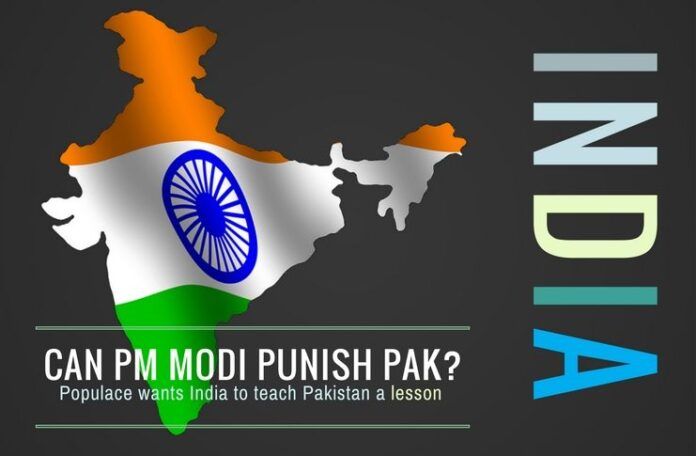
[dropcap color=”#008040″ boxed=”yes” boxed_radius=”8px” class=”” id=””]T[/dropcap]he next Parliamentary elections in India are due in 2019 but before throwing his hat in the poll arena Prime Minister Narendra Modi faces the real challenge of fulfilling the common wish of the people of India–punish Pakistan and deliver justice to the nation of passionate martyrs- sacrificing everything to live their dreams.
The recent strike at Army’s Brigade headquarters in Uri sector, nine months after a similar strike on Pathankot’s strategic air base has once again brought the spotlight back on the moot question of tackling threats emanating from the Pakistani soil and disturbing peace in the region.
In the last five days the manner in which the angry nation has responded across different cities of India and the way TV anchors have been channelising the closed door anger against the neighboring country, it is evident everyone is looking up to ‘Pradhan Sewak’ to lead from the front and deliver a strong message to Pakistan.
After all when Modi was working hard to win the 2014 Parliamentary polls he thrived on exposing the soft approach adopted by the Congress Prime Minister Manmohan Singh and completed the victory lap by naming and shaming his political opponents who once adopted a soft approach towards the neighbouring country.
In 2002-03 Operation Parakram costed India over $3 billion and Pakistan expended about half that amount.
The mood of the nation and especially the border residents who have been witnessing border skirmishes despite the ceasefire agreement of November 2003 is in support of ‘decisive’ and firm response to silence the Pak guns disturbing their peace and inflicting heavy causalities on the human population.
To contain people’s anger Modi himself echoed similar sentiments claiming that the death of 18 soldiers will not go unpunished. The BJP top brass went one step ahead and declared that the policy of strategic restraint is now over and that more proactive measures need to be taken against Pakistan.
Even the majority of strategic experts found themselves on the same page when they started addressing the simple question of taking action against Pakistan.
Now is it really happening or it is business as usual?
[dropcap color=”#008040″ boxed=”yes” boxed_radius=”8px” class=”” id=””]S[/dropcap]o far as talks centering on taking diplomatic measures to isolate Pakistan is concerned no significant headway has been achieved. Pakistan continues to enjoy the status of Most favoured nation, diplomatic ties remain intact, border trade is happening and even Peace bus services via Uri-Muzaffarabad and Poonch Rawalakot route are going on smoothly. The idea of reviewing Indus Water Treaty of 1960 with Pakistan has been under the scanner at the highest level but nothing concrete has been announced as yet.
At the same time the three security chiefs, political leadership and other stakeholders may have been keeping themselves, ‘superficially’ busy in weighing down their options and preparing the ground for handling the aftermath of any military strike against Pakistan the common refrain on the streets this time is undoubtedly in support of taking tough measures to isolate Pakistan from the world community and force it to bend its knees.
Will it happen and is it so easy to force Pak leadership to delink itself from military establishment?
[dropcap color=”#008040″ boxed=”yes” boxed_radius=”8px” class=”” id=””]T[/dropcap]o analyse this fundamental question we need to go back to the history of military chiefs exercising control over popular leaders in Pakistan and forcing their own agenda to destabilise India by continuing its policy of bleeding India through a thousand cuts and employing the same tools sharpened by the Inter Services Intelligence (ISI).
It was in the winter of 2001 that Indians faced a similar situation immediately in the aftermath of fidayeen strike on the Indian Parliament. The then Prime Minister Atal Bihari Vajpayee had decided to mobilise armed forces at the border to force Pakistan to fall in line else face punitive action.
Between December 2001 to June 2002, troop mobilisation happened to the extent that the forces saw each other standing eyeball to eyeball. As the situation saw no signs of improvement and more provocative acts of terror sponsored from Pakistan tested India’s patience the statesman in Atal Bihari Vajpayee decided to give peace another chance. In late 2002 Vajpayee signalled that the military could stand down, and finally Operation Parakram was called off.
Even without firing a single bullet India had to pay a very heavy price in the form of losing 798 soldiers. These fatalities were caused by ammunition-related accidents, mine-related fatalities and in some cases, ‘friendly fire’. In contrast, the 1999 Kargil War resulted in the death of only 527 Indian troops.
In 2002-03 Operation Parakram costed India over $3 billion and Pakistan expended about half that amount.
Was it avoidable?
[dropcap color=”#008040″ boxed=”yes” boxed_radius=”8px” class=”” id=””]I[/dropcap]f India had decided against firing a bullet and targeting Pakistan what was the need to roll out strike corps and keep them deployed at the borders only to recall them. Can Narendra Modi afford to commit the same mistake of mobilising forces or later withdraw them after achieving the objective of roping in Pakistan through coercion.
Is India really in a position to wage a decisive war against Pakistan and has all the wherewithal in its kitty to survive for too long and absorb the backlash? Only time will tell.
The graphic below shows the casualties and injuries suffered by Indian civilians and soldiers.
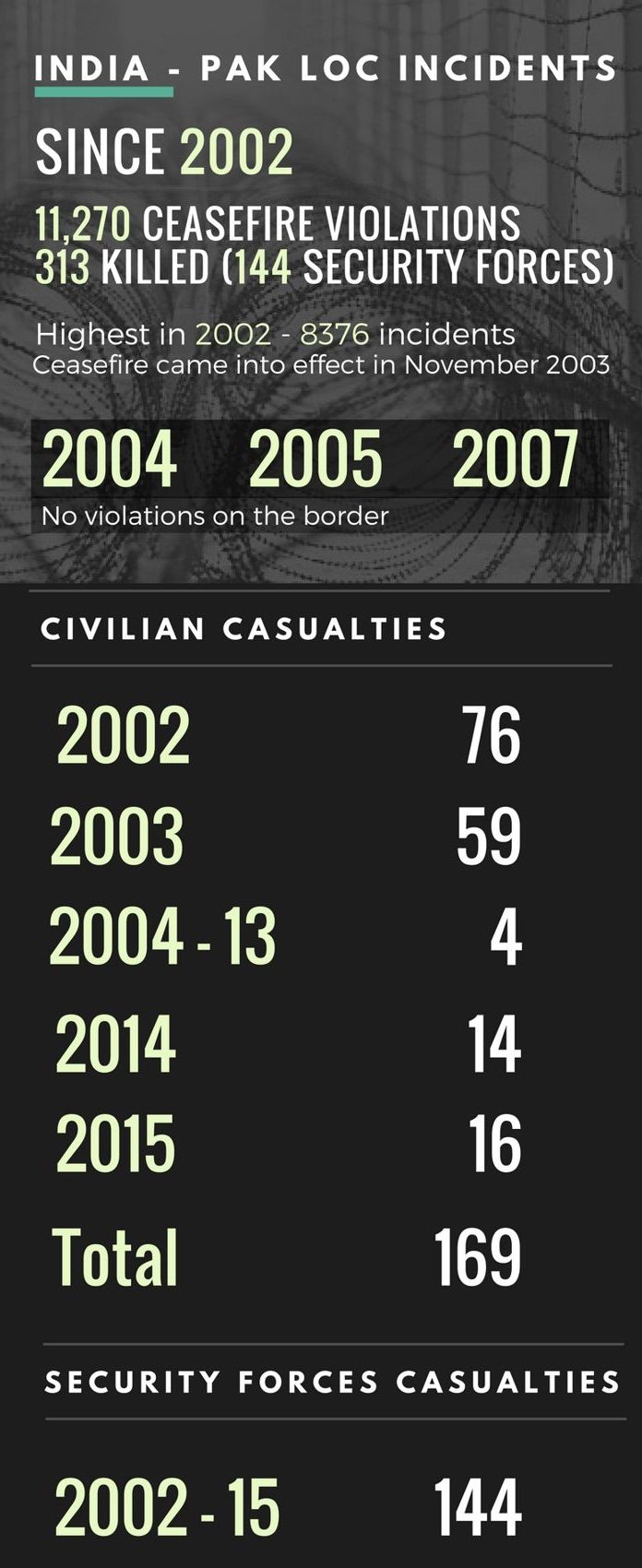
- Assembly polls in Jammu and Kashmir soon: Modi - April 12, 2024
- Campaign trail: Udhampur-Doda Lok Sabha seat - April 8, 2024
- Ghulam Nabi Azad returns to the poll arena, to contest the Anantnag-Rajouri Lok Sabha seat - April 2, 2024

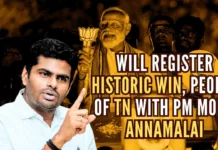
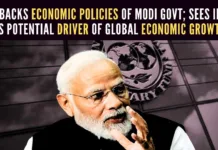
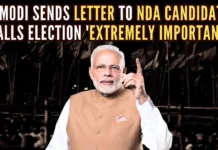







Why do all newspapers end up analysing that nothing shud be done???